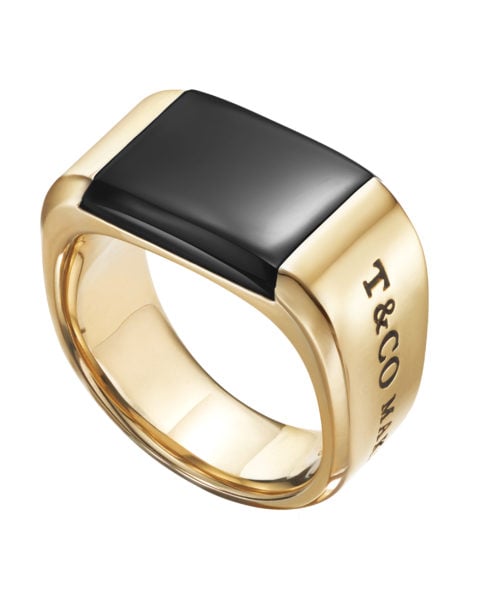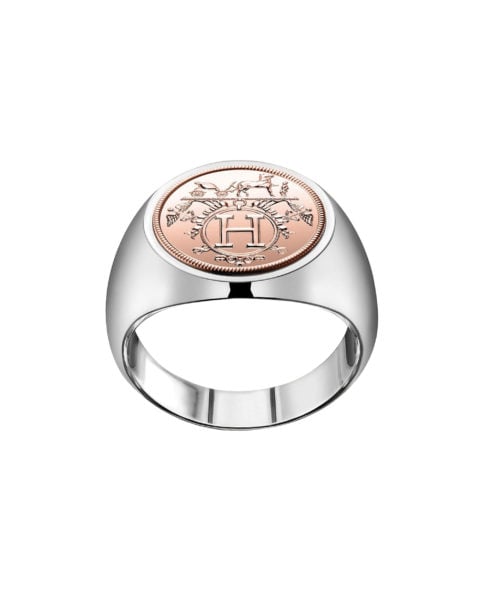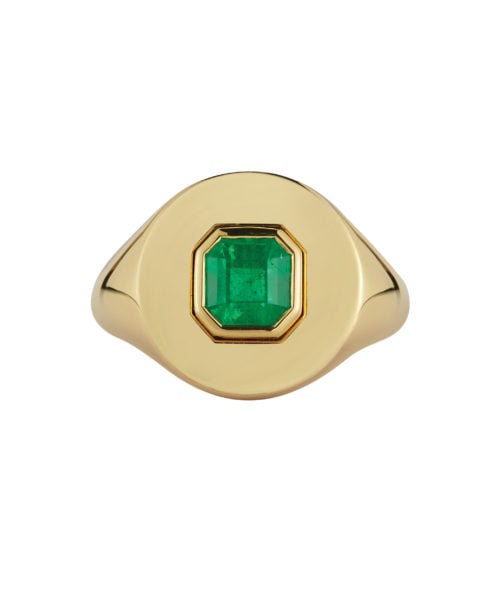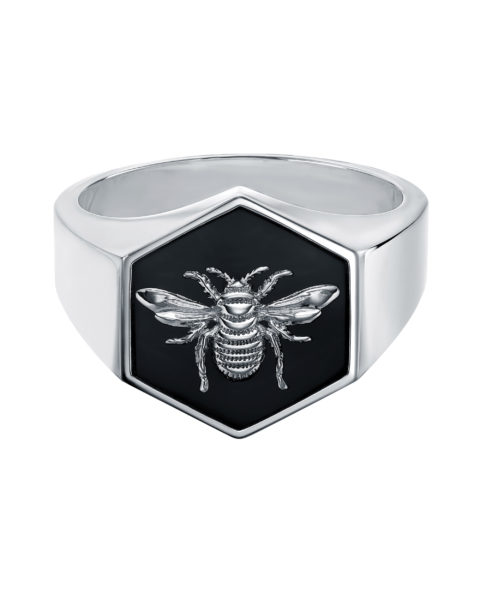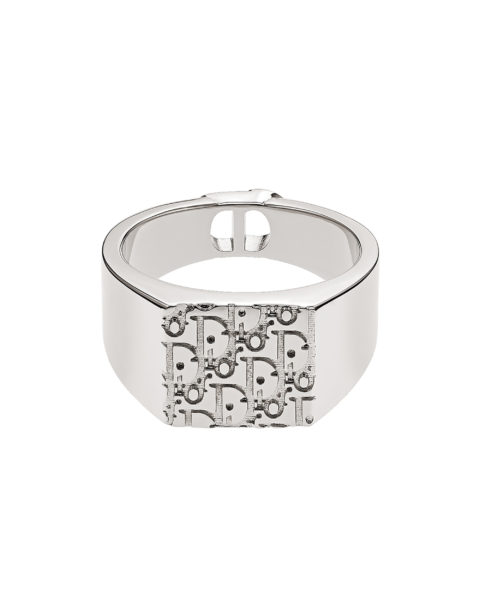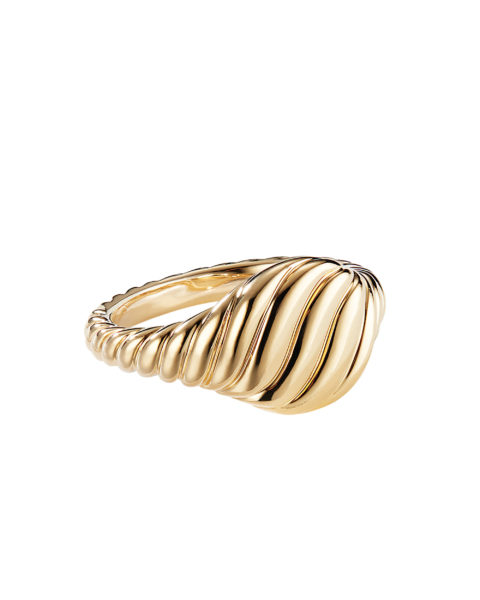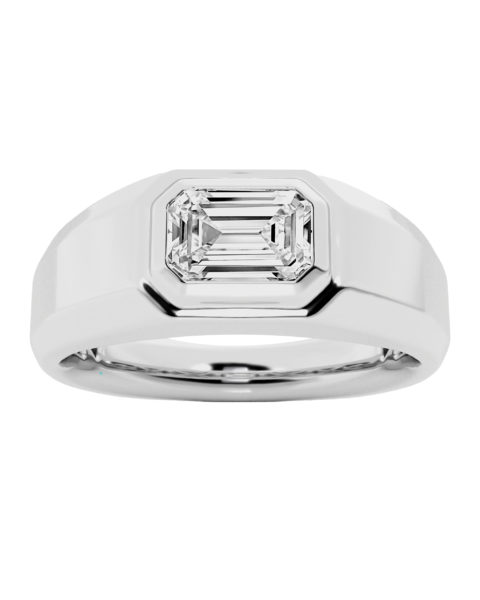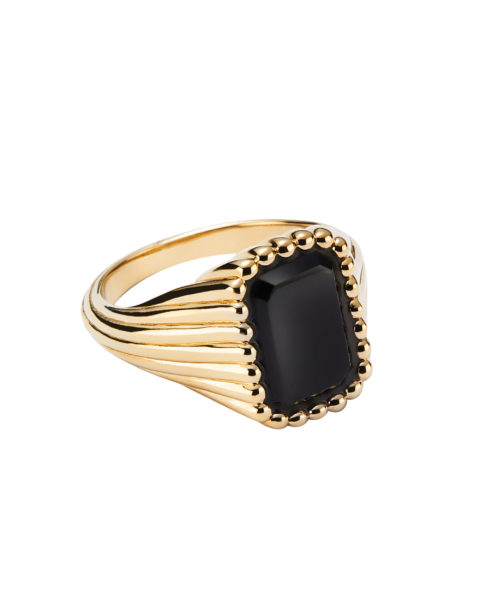The Surprising History of Signet Rings
When they say “Kiss the ring,” it’s not a wedding band they’re talking about. Neither is it an engagement, purity, mourning, adultery, poison-concealing squirt or any of the many other kinds of signifying rings that proliferated from the Middle Ages through to the Victorian era. No, the ring that lackeys press their lips to in obeisance is always a signet, or seal, ring — “signet” comes from the Latin word for “sign,” as in sign of success. Think Super Bowl rings. Or the Pope’s ring, a.k.a. the Ring of the Fisherman.
RELATED: Jewellers Are Using Kintsugi to Upcycle Broken Gems
It’s usually big
A signet ring can be a chunky thing, often worn on the pinky (like King Charles III), index finger or thumb — or sometimes all (like Liberace). Its singular characteristic is a flat top or bezel of varying shapes with some symbol of authority inscribed into the gold face or sometimes into a hard stone, like jasper. For example, a family crest in intaglio could serve as a signature. By being pressed into sealing wax, the engraving on the signet ring invested documents or letters with the authority of the ring holder, essentially encrypting them. This was true up until the 19th century.
Millennia earlier, Egyptian pharaohs had their names set in signet rings made of stone, like steatite, or sometimes solid gold. Earlier still, the Mesopotamians in 3500 BC wore signet rings that they pressed into tablets of wet clay as a way of signing them. Centuries later, beginning in 2900 BC, the Minoans did the same with signet rings carved out of ivory. This is why we kiss the ring — because the signet ring is power jewellery for the ages.
It functioned as a signature until…
Unlike some other jewellery, the signet ring was never merely ornamental. Instead, it expressed the self, especially the legal self. Signet rings were stand-ins for one’s identity and, by extension, conferred that identity to land deeds, loan declarations, wills — anything that required validation from someone influential.
This is why, in some cultures, signet rings were destroyed when their owner died rather than handed down. The papal signet ring was always smashed with a ceremonial hammer with each passing — and still is. Historically, the signet ring’s potential for wreaking posthumous havoc was too dangerous.
…more people learned how to read
By the 17th century, many people were literate enough to authenticate documents with their written signature so signet rings became less of a functional item and more of a fashion statement. And like the signet rings of old, the 19th-century versions were personalized with the owner’s initials or monogram and began to be set with showy gems, both precious and semi-precious.
It’s sexy, too
“He spent the time examining Dickie’s rings. He liked them both: a large rectangular green stone set in gold on the third finger of his right hand, and on the little finger of the other hand a signet ring….” In The Talented Mr. Ripley, Dickie Greenleaf’s pinky ring represents family money. It signals to Patricia Highsmith’s sociopath, Tom Ripley, that Greenleaf is his for the taking.
Besides wealth and influence, signet rings telegraph quintessential maleness, too (the homosexual undercurrents between Ripley and Greenleaf notwithstanding). Historically invested with wealth, power and maleness, a signet ring worn on a woman’s finger suggests radically enticing things, like empowerment and of-the-moment gender fluidity. Highsmith, herself an out lesbian, wore a signet ring on her pinky. And signet rings worn on the thumb read as idiosyncratic and sexually unconventional.
So, why are signet rings so in? Because they’ve never been out. Of fashion, that is — or anything else.
Below are nine stylish signet rings you can wear forever.
This article first appeared in FASHION’s Summer 2023 issue. Find out more here.
This article contains affiliate links, so we may earn a small commission when you make a purchase through links on our site at no additional cost to you.
The post The Surprising History of Signet Rings appeared first on FASHION Magazine.
